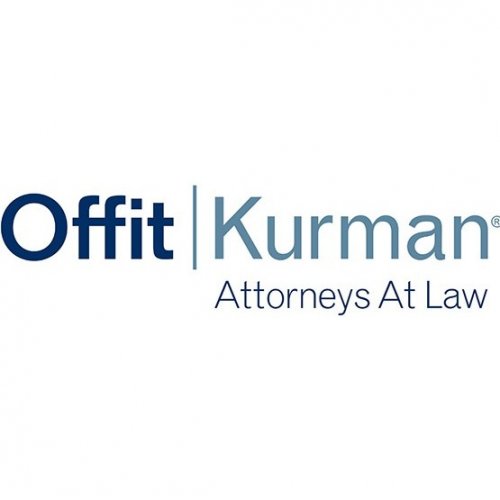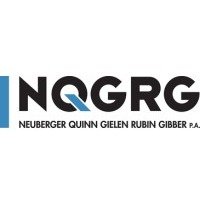Best Elder Abuse Law Lawyers in Baltimore
Share your needs with us, get contacted by law firms.
Free. Takes 2 min.
List of the best lawyers in Baltimore, United States
About Elder Abuse Law in Baltimore, United States
Elder abuse law in Baltimore, United States, is a collection of legal protections designed to prevent harm and neglect of individuals aged 65 and older. These laws are vital as they address various forms of abuse, including physical, emotional, sexual, and financial abuse, as well as neglect and abandonment. In Baltimore, both state and local laws work in conjunction to ensure that elder citizens are protected from abuse in all settings, whether at home, in care facilities, or in the community. The aim is not only to penalize wrongful conduct but also to provide elders and their families with avenues for relief and protection.
Why You May Need a Lawyer
There are several situations in which you might need legal help regarding elder abuse law in Baltimore:
- You suspect that a loved one is being abused or neglected in a nursing home or care facility.
- There are financial discrepancies concerning the management of an elder’s assets, indicating possible financial abuse.
- A vulnerable elder is experiencing threats or intimidation from a caregiver or family member.
- You need to understand your legal rights when reporting elder abuse and the processes involved.
- You're facing legal proceedings either as a victim or alleged perpetrator of elder abuse and require representation.
Local Laws Overview
Baltimore, in compliance with Maryland state laws, outlines comprehensive provisions to safeguard the rights of the elderly. Key aspects include:
- Mandatory Reporting: Certain professionals, like healthcare providers and social workers, are mandated to report suspected elder abuse to authorities.
- Adult Protective Services (APS): A statewide service that investigates reports of elder abuse and neglect, offering support and intervention.
- Legal Penalties: Elder abuse can lead to both civil and criminal penalties, including fines and imprisonment for perpetrators.
- Protective Orders: Legal instruments to protect elders from their abusers by restricting contact.
- Elder Justice Act: Federally supports state efforts to address elder abuse, with Baltimore benefiting from resources aimed at prevention and prosecution.
Frequently Asked Questions
What is considered elder abuse in Baltimore?
Elder abuse includes physical, emotional, sexual abuse, neglect, and financial exploitation of individuals aged 65 and older.
Who can report elder abuse?
Anyone can report elder abuse. Professionals like healthcare workers are mandated reporters who must report suspected abuse.
What are the signs of elder abuse?
Signs include unexplained bruises, withdrawal from social interactions, sudden financial changes, poor hygiene, and untreated medical issues.
How do I report elder abuse in Baltimore?
Contact Maryland’s Adult Protective Services or your local police department to report suspected abuse.
What can the legal system do to protect elders?
The legal system can issue protective orders, prosecute offenders, and enlist Adult Protective Services to investigate and provide aid.
Can financial exploitation be considered elder abuse?
Yes, financial exploitation is a common form of elder abuse and is taken seriously under Baltimore and Maryland law.
Are there any support services for elder abuse victims?
Yes, services include counseling, legal aid, emergency shelters, and case management provided by various local organizations.
Can I be penalized for reporting suspected abuse if it turns out to be unfounded?
No, as long as reports are made in good faith, reporters are generally protected from legal action.
What legal rights do elder abuse victims have?
Victims have the right to protection, legal recourse, and services designed to ensure their safety and well-being.
How can a lawyer assist in elder abuse cases?
Lawyers can provide representation, help navigate legal processes, assert victims’ rights, and prosecute offenders as needed.
Additional Resources
Consider contacting the following resources for support and information:
- Maryland Adult Protective Services: Offers investigative and supportive services for elder abuse victims.
- The Long-Term Care Ombudsman Program: Advocates for residents in nursing homes and other long-term care facilities.
- Baltimore County Department of Aging: Provides a range of services and information for elder residents.
- Maryland Legal Aid: Offers free legal services to seniors with low income facing abuse.
Next Steps
If you need legal assistance in elder abuse law, begin by consulting with a specialized lawyer who can provide guidance according to your situation. Gather any relevant documentation or evidence if you suspect abuse. You might also consider contacting relevant authorities or organizations, like Adult Protective Services, to report abuse or seek support. Most importantly, ensure the immediate safety of the elder by contacting local law enforcement if they are in immediate danger.
Lawzana helps you find the best lawyers and law firms in Baltimore through a curated and pre-screened list of qualified legal professionals. Our platform offers rankings and detailed profiles of attorneys and law firms, allowing you to compare based on practice areas, including Elder Abuse Law, experience, and client feedback.
Each profile includes a description of the firm's areas of practice, client reviews, team members and partners, year of establishment, spoken languages, office locations, contact information, social media presence, and any published articles or resources. Most firms on our platform speak English and are experienced in both local and international legal matters.
Get a quote from top-rated law firms in Baltimore, United States — quickly, securely, and without unnecessary hassle.
Disclaimer:
The information provided on this page is for general informational purposes only and does not constitute legal advice. While we strive to ensure the accuracy and relevance of the content, legal information may change over time, and interpretations of the law can vary. You should always consult with a qualified legal professional for advice specific to your situation.
We disclaim all liability for actions taken or not taken based on the content of this page. If you believe any information is incorrect or outdated, please contact us, and we will review and update it where appropriate.










